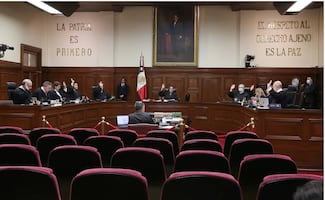Más Información

Sheinbaum se reúne con gobernadora de Banxico e integrantes de la ABM; conversan sobre perspectivas económicas

Corte pagó cursos de yoga, Tai chi y cocina a empleados y pensionados; adjudican contratos de forma directa

Detención fue porque soy incómodo para Layda Sansores: exrector de la UAC; quería que no me reeligiera, dice

Familias de víctimas del ataque mortal de EU en el Caribe demandan al gobierno de Trump; acusan ejecución extrajudicial y negligencia

Virus Nipah: ¿cuáles son los síntomas y cómo se contagia el virus que puso en alerta a India?; conócelo aquí
Kalaumari Mayoral Peña
, a student from the Monterrey Institute of Technology and Higher Education (ITESM) , Querétaro campus, is developing a chip that can detect and separate cancerous cells in the bloodstream with 90% efficiency.
The microfluid chip is part of Mayoral Peña’s doctoral project and works with a blood sample similar to the one obtained with a glucometer.
At first, the device will focus on detecting breast cancer, according to a press release issued by the university through their website .
One of the microchip’s most important traits is that it captures and analyzes cancer cells individually, which allows to gather valuable information for the patient’s diagnose and treatment.
“Conducting a thorough analysis of cancer cells by using new biotechnological tools will allow us to gather information that can help in the development of better treatments and diagnosic techniques,” said Mayoral in an interview.
Unlike conventional procedures that take cell samples and assess an average of the amount of cancer cells in the bloodstream, this hi-tech analysis takes into account small cancer cell clusters with a different profile, which are harder to detect otherwise.
The student clarified that he still didn’t have a parameter for effectiveness, though he expects the chip to be 90% effective during trials with cancerous cells.
The project has offered Mayoral Peña many opportunities to collaborate with both Mexican and foreign institutions, such as Harvard University .
dm
Noticias según tus intereses
[Publicidad]
[Publicidad]










